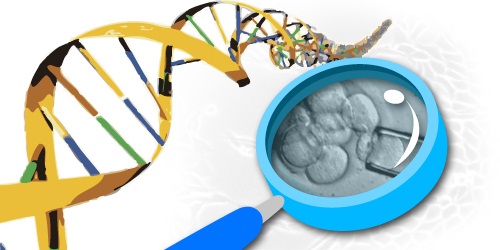The different Stem Cell Research pros and cons have been surrounded by so much controversy. Like everything else, the Stem Cell Research has its own set of advantages as well as drawbacks. In order for us to find out the truth about whether the Stem Cell Research is truly beneficial or not, we first have to reach a full understanding of the different Stem Cell Research pros and cons and how it works. It is also essential that we look closely at some of the aspects of this research subject that are of particular interest to be able to shed some light on the truth about Stem Cell Research.
All about Stem Cells
If you are interested in what the Stem Cell Research pros and cons are, you first need to understand what the stem cells are all about. Stem cells are non-specialized cells that have the ability to manufacture other cells of specific types. These specific cells include muscle cells, brain cells, blood cells and tissue. While stem cells can be found all through out the body, these cells can be found in greater numbers in fetuses compared to those found in adult individuals. There are some types of stem cells that have the ability to manufacture all other types of cells, while there are also some that have the ability to regenerate, replace or repair damaged cells or tissues.
An Overview of Stem Cell Research
The Stem Cell Research pros and cons are viewed differently by a lot of people, thus, the controversy surrounding this subject. Some people may find Stem Cell Research as beneficial and advantageous, but there are also a lot of people who find Stem Cell Research as unethical. These opinions vary depending on how an individual will view this subject. A lot of people are wondering why there is so much controversy about this specific research. In order for you to find out if the pros of the Stem Cell Research outweigh its cons; you need to know what Stem Cell Research is all about.
Stem Cell Research is used by scientists and medical professionals to investigate the basic cells responsible for developing organisms. Grown in medical laboratories, these cells are tested out to find out the different properties that they carry. One of the major controversies surrounding this research subject has led to numerous ethical debates.
During the first few years of the research done on this subject, its focus was mainly on the Embryonic Stem Cells. The process involved taking tissue samples from aborted embryos or aborted fetuses. This method was performed just a few days after the conception of the embryo, usually between the 5th week and the 9th week.
Since a lot of people found this process to be unethical, researchers and scientist have tried to find more ethical methods to proceed with the Stem Cell Research. They soon came up with the Induced Pluripotent Stem Cells or iPS. The process of taking the Induced Pluripotent Stem Cells follows an artificial derivation from non-pluripotent cells such as from adult somatic cells. This breakthrough has then played a major role in providing researchers and scientists with more ethical means to obtain stem cells without the usual controversy surrounding the use of aborted embryos or fetuses.
The Two Main Debate Subjects Concerning the Stem Cell Research Pros and Cons
The Stem Cell Research pros and cons have been the subject of numerous ethical debates. There are two main ethical issues regarding these advantages and drawbacks of the Stem Cell Research. The first is how the knowledge will be used and the second is the concerns regarding how the methods are performed. The first issue does not only concern the Stem Cell Research, it is applied to almost all types of research done to improve human health. Since the breakthrough of the Induced Pluripotent Stem Cells enabled researchers to proceed with more ethical methods, the second issue concerning the methods used has been less debated about.
Stem Cell Research Pros: Advantages and Benefits of the Stem Cell Research
Stem Cell Research pros have been found out to have potential in treating several medical and health problems. This has led to the belief that the stem cells could help improve and develop much better medical processes to cure a wide range of diseases. These diseases that the Stem Cell Research can possibly cure include Parkinson’s disease, heart diseases such as stroke and Type 1 diabetes, spinal cord injuries, birth defects and Alzheimer’s disease. It was also found out that Stem Cells may have a significant effect in reducing the risks associated with transplantation as well as cancer.
Stem Cell Research Cons: Disadvantages and Drawbacks of Stem Cell Research
A lot of people argue that while Stem Cell Research may have numerous benefits, these benefits do not outweigh the Stem Cell Research cons. Many individuals believe that it is unethical to “mess with the human life” and that “humans should not be trying to play God.” There are also a great number of people who argue that this research subject, if continued, can lead to the knowledge and application of human cloning. While this has not been proven yet, the consequences that human cloning can bring about are still too devastating to think about.
Conclusion
The different Stem Cell Research pros and cons should be valued carefully to reach an unbiased opinion of this research subject. There are many reasons why this research has been the subject of numerous intense and heated debates. One of these reasons concerns the process of abortion. While the stem cells from an aborted fetus can help cure diseases in living human beings, does this mean that it can justify the cruelty of having an unsuspecting fetus aborted? However, it is most fortunate that researchers and scientist have found more ethical ways to proceed with their research. It is up to you on whether you think that the different Stem Cell Research pros will outweigh its cons.









